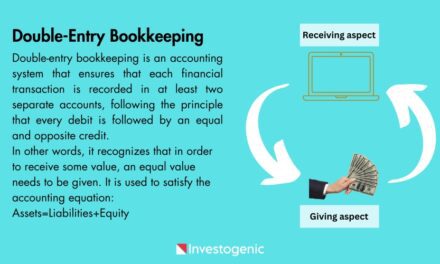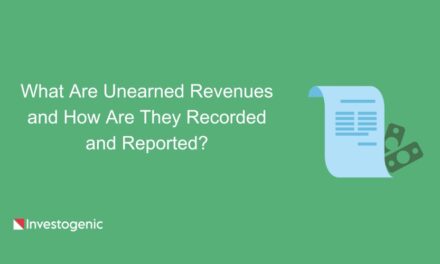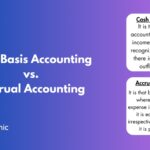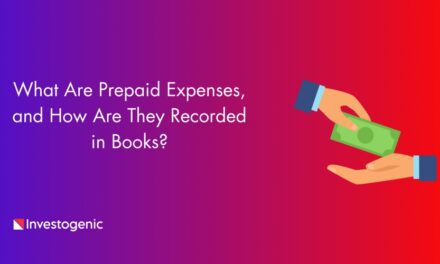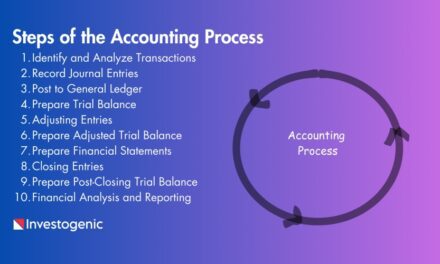
What Is A Budget, and How Is It Helpful For Financial Planning?

Budgeting and financial planning are essential processes you can use to improve your finances. You can use budgeting for financial planning. This means that budgeting is done for better financial planning only, or budgeting is the foundation of financial planning, which helps you achieve better financial planning.
What do you understand from financial planning?
Financial planning is the process of achieving a financial goal. A financial plan acts as support on the journey of life. Essentially, it helps you take control of your income, expenses, and investments to manage your money and achieve your goals.
Money plays an essential role in your life journey; if you want to have enough money for the rest of your life, then financial planning can help you. So we can also say that the management of money is financial planning.
For better understanding, let us take one example: if you want to build up a corpus of $50,000 for your daughter’s college education through investments, you need to grow this amount by the time she turns 18. Not a year later. This is where financial planning becomes essential.
What is a budget?
A budget is a financial plan that outlines your expected income and expenses over a specific period, typically on a monthly or annual basis. It provides a detailed overview of your financial situation, helping you manage your money, allocate funds, and make informed decisions about spending and saving. Budgeting is a fundamental tool for effective financial planning and management.
How is a budget helpful for financial planning?
Budgeting is helpful in financial planning in many ways, such as tracking expenses, income management, debt management, planning for emergencies, investing, avoiding overspending, and achieving your financial goals. Let us discuss it in detail to understand it more effectively.
- Expense Tracking: Budgeting helps you keep track of your expenses so that you can easily know where your money is going. By categorizing and recording your spending, you get a clear understanding of your financial habits and can identify areas where you tend to overspend.
- Income Management: Budgeting helps you manage your income effectively by ensuring that your expenses do not exceed your earnings. It allows you to allocate your income toward various needs and goals, such as bills, savings, investments, and discretionary spending.
- Debt Management: With a budget, you can plan how to pay off existing debts systematically. By allocating extra funds toward debt repayment, you can reduce interest costs and work toward becoming debt-free more quickly.
- Achieving Financial Goals: A budget helps you set and achieve financial goals. It helps you manage your expenses and income well, so whether you’re saving for a vacation, a home, retirement, or paying off debt, a budget can help you fund these goals. Helps you allocate and track your progress.
- Emergency Fund: Budgeting includes setting aside money for an emergency fund. This fund provides a safety net for unexpected expenses, such as medical bills or car repairs, and prevents you from relying on credit cards or loans in times of need.
- Prioritization: A budget helps you prioritize your spending based on your values and financial goals. You can allocate more resources to the things that matter most to you while cutting back on less essential expenses.
- Cash Flow Management: Budgeting helps you maintain positive cash flow, which means your income exceeds your expenses. Positive cash flow provides financial stability and reduces the risk of living paycheck to paycheck.
- Avoiding Overspending: By creating spending limits within your budget, you are less likely to overspend and build up unnecessary debt. Because you become more conscious of your spending choices.
- Investing and Saving: A budget allows you to allocate money to savings and investments, such as retirement accounts, stocks, bonds, and other wealth-building strategies. Regular contributions to these accounts help you achieve long-term financial security.
How can you make an effective budget?
By now, you must have understood what a budget is and how it helps in financial planning. Now we will learn how to make an effective budget so that you can achieve your goals. Budget preparation is a very simple process, whose detailed information is given below.
- Determine Your Income: To make a budget, you have to calculate your total monthly or annual income from all your sources.
- List Your Expenses: Next, make a detailed list of all your expenses, which can include both fixed (mortgage, rent, utilities) and variable (groceries, entertainment, or other) expenses.
- Categorize Expenses: After which, for the sake of ease, you can group your expenses into categories like housing, transportation, food, loan repayment, savings, and discretionary spending.
- Set Priorities and Limits: Allocate funds to each category based on your financial goals and priorities. Here, you must make sure that your total expenses do not exceed your income.
- Monitor and Adjust: Budgeting is a continuous process. For this, keep track of your expenditures regularly and compare them with your budget. Adjust your budget as needed to stay on track and accommodate changes in your financial situation.
How do I make budgeting a habit?
Making budgeting a habit requires consistency, discipline, and a willingness to prioritize your financial well-being. You can follow some steps to make it a habit, like:
- You set clear goals: To make budgeting a habit, you are required to define clear goals, like what you want to achieve through budgeting. Whether it’s paying off debt, saving for a vacation, or building an emergency fund, having clear goals will give you strong motivation to stick to your budget.
- Choose a Budgeting Method: There are various budgeting methods you can choose from, such as the 50/30/20 rule, zero-based budgeting, envelope budgeting, or using budgeting apps. Select a method that aligns with your preferences and financial situation.
- Use Technology: Budgeting apps and tools can make the process more convenient and efficient. These tools can help you track expenses, categorize expenses, and visualize your financial progress. This will automate your savings and bill payments. This will also ensure that you are saving consistently and meeting your financial obligations without having to manually manage each and every transaction.
- Start Small: If budgeting feels overwhelming, start with a smaller timeframe, such as tracking your expenses for a week. Gradually extend the timeframe as you become more comfortable with the process.
- Reward Yourself: Reward yourself when you achieve budgeting milestones or financial goals. Celebrating your successes can help reinforce the positive behavior of budgeting.
- Schedule Regular Check-Ins: Every week or month, set aside time to analyze your budget, keep tabs on your expenditures, and make any required adjustments. Because maintaining control of your finances requires consistency.
- Educate Yourself: Learn new things about money management, budgeting, and personal finance every day. Your motivation to keep to your budget will increase as you gain more financial knowledge.
Learn more: How to Finance a Home Purchase Through a Mortgage
















